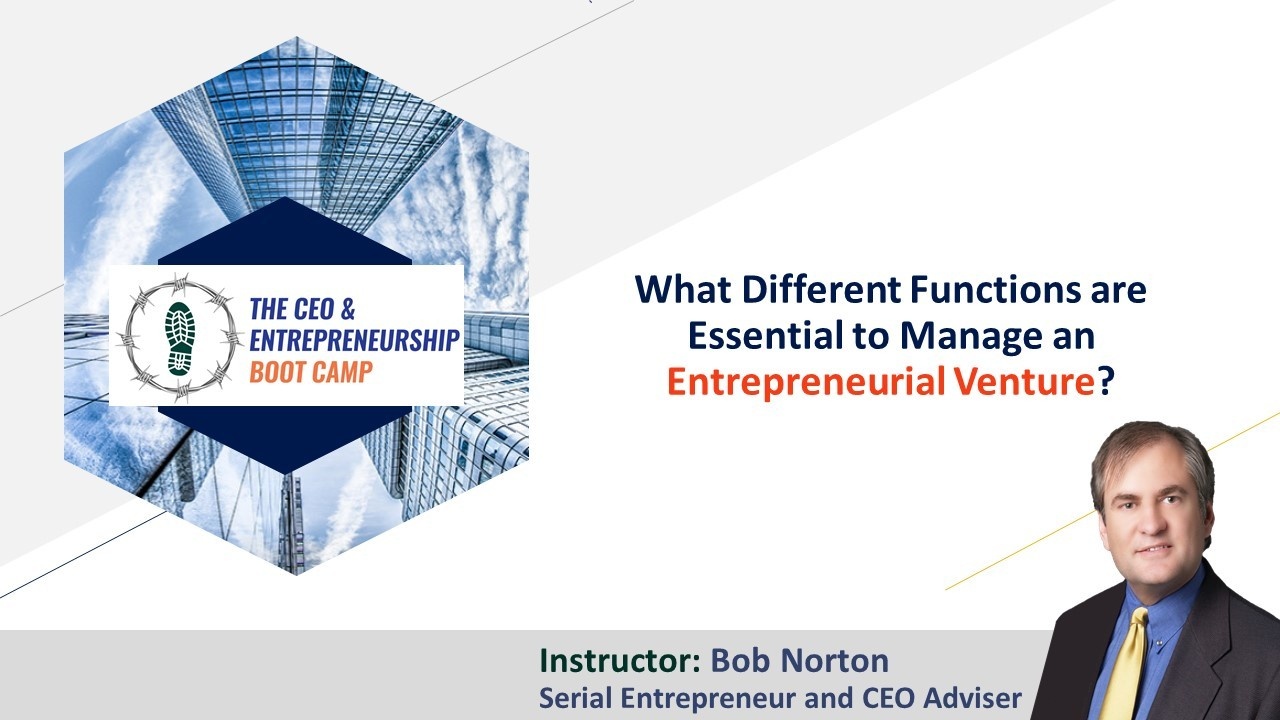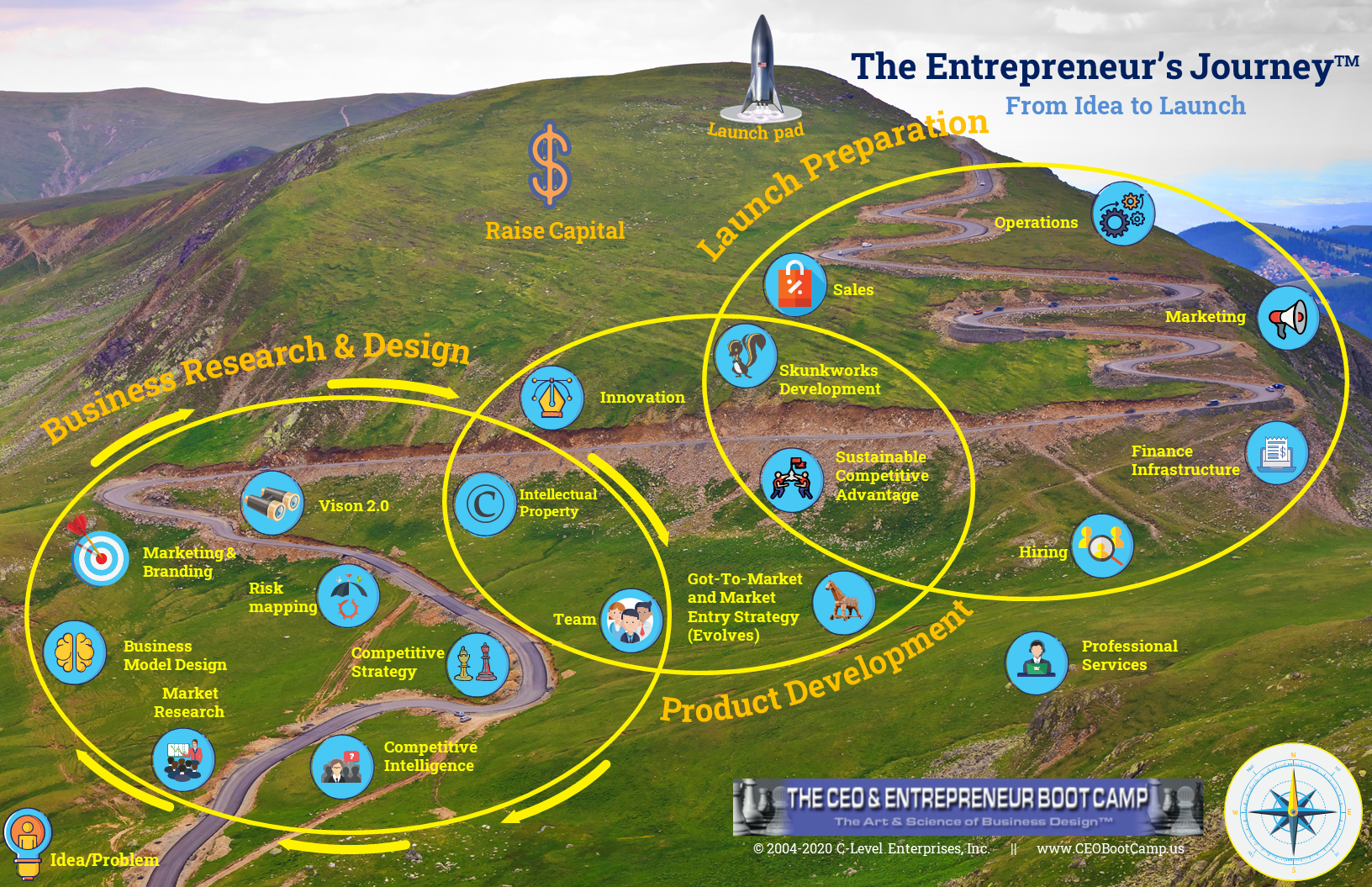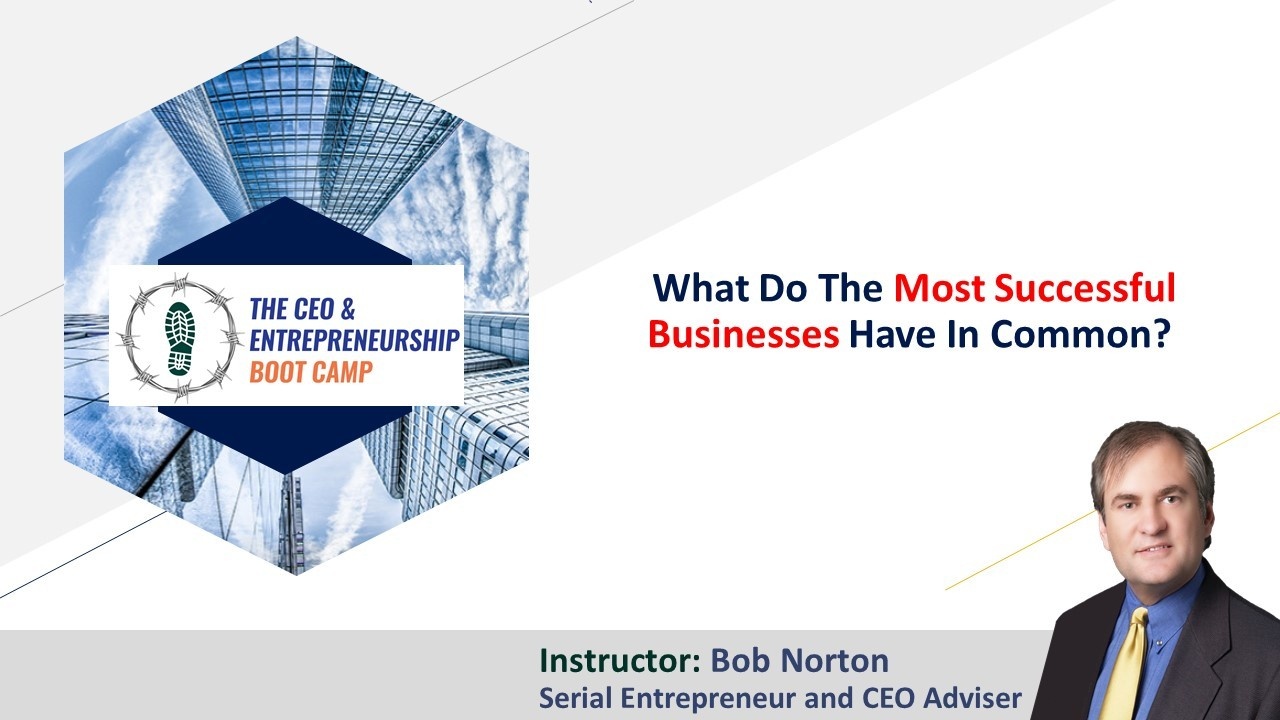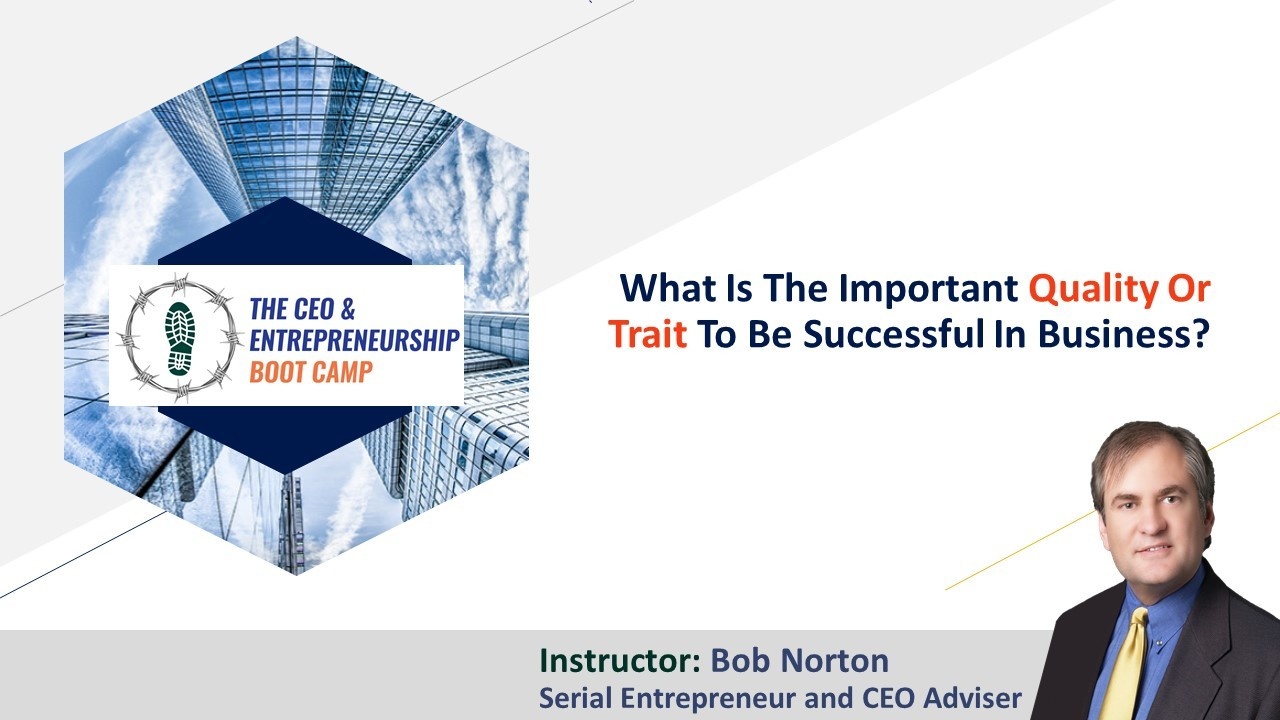Planning for Higher Sustainable Competitive Advantage (SCA)

I find that pitch decks to investors fail to articulate how they will maintain a market lead and build barriers to entry around their business over time, as more competitors emerge. We teach 17 ways to increase SCA at The CEO Boot Camp and in our scaling consulting work.
I would recommend adding two additional slides to the standard 10-12 most have in their decks. This will impress investors far more than some fancy graphics or massive TAM market claims. Slides to add:
- Sustainable Competitive Advantage (SCA) - How will you evolve your barriers to entry over time. The "Moat" which can create higher PE ratios. Product roadmap and innovation? IP? Brand? Partnerships? Etc.
- Market entry strategy, which is not the same as Go to Market strategy. This shows expanding markets, niches and the $1B market opportunity - which NO startup should ever enter initially because then they are competing with giants on day #1. A slow suicide strategy.
These two additional slides...
How Can A Young Tech Company Compete Against Established Players In The Market?

Startups should never, ever, never compete with big companies. They must offer something different. “Differentiated” is the most important word in designing a startup market entry strategy.
Look at this diagram and decide how you can adjust your company to be in the top right quadrant. Without that you have no chance of surviving, never mind profiting, because you will compete with companies 100 to 1,000,000 times larger than you with already developed marketing and sales channels and huge budgets.

Only these kinds of companies will attract investors (needed to grow) and top employees because they know the stock options can be game changers for their personal wealth.
What are the Most Common Mistakes that Entrepreneurs Make?

Here is a short list of others, because there are hundreds:
- Assuming you can raise capital before you have a product, most cannot.
- Not building a team of 2–3 founders who can work for cheap or free for a year. You need this to build an MVP. This team needs marketing, sales and technical skills, not just product development, as the vision needs to be complete with a sales and marketing plan that requires senior expertise.
- Not doing sufficient market research and competitive intelligence to understand the target market and customer. Many are so paranoid of their idea being stolen (ideas are worthless, BTW) that they fail to validate their product/service.
- Pure arrogance and stupidity, yes, this may be 50%. They believe they can get others to do the hard work they need to do and keep the company. Some even believe they can just hire a CEO and give them 10% and keep 80% for themselves. Why would any experienced CEO ever do that when ideas are a dime a dozen, and they can just...
What is Your Resource Saving Tip for Individuals?

According to this source, resources needed from the planet will be exceeded by human demand this August. I guess this means more people starve and suffer soon. I find most corporate ESG initiatives to be all PR and no real meat or commitment. What are you doing to reduce the human footprint on the planet?
So many easy things every individual can do. Interestingly, I learned today from a related chart you can see at link below that almond milk uses 40.9% less water than cow's milk. And my doctor recommends it for less cholesterol, too. These easy choices can help.
Same with eating less red meat and more veggies. Better for you, too. ;0)
Two-thirds of the economy is the consumer, and so our choices matter. I started donating to Greenpeace in the 1980s when the Rainbow Warrior sailing ship was covertly bombed by the French gov't (evil), showing total disregard for not just whales, but also the law, people, free speech and the planet as a whole. Forty years later, we...
What are the most common mistakes you have seen founders make when they start a business?

Prepare for years in advance by study and experience in management, leadership and smaller companies. Read 2–4 books per month. Always be learning. Now, you can build a tiny house alone, but building a significant company requires a team without about 20 different skills that no one person possesses. Many think they can build a skyscraper alone, even without capital! Dumb. A formula for disaster and why 85% of new companies fail. It takes tremendous commitment and perseverance and is always a rollercoaster ride. Almost never a straight, predictable, linear process.
Here are some great educational sources I have created to solve this exact problem click here to check
Click here to check our all Certification Programs

All entrepreneurs and CEO must be committed to life-long learning. After 31 years as a CEO it gets hard to find and learn new things, but the world changes and there is always something new to learn. Most success comes from great strategy and great team....
What Different Functions are Essential to Manage an Entrepreneurial Venture?

There are five key areas in most business plus the softer skills of management, leadership, hiring and creating a productive culture. The five key areas are:
- Marketing
- Sales
- Product/service development (innovation)
- Finance
- Operations & Customer service
A new venture needs slices of expertise in each area with a senior person that has 5+ years full-time experience in each on tap. Initially the development of the company is mainly about #1 and #3, which Peter Drucker the father of management says are really the two key functions. This is true because they require more creativity and top people.
In addition, under these categories of business there are about 30 to 40 more detailed level skills needed to grow any company. For example, marketing would include: branding, strategy, graphics design, SEO, PPC, copywriting, web page programming, etc.
I created a course to review these skills that is about one hour and free here:

This is about growing significant businesses and building...
What do the most successful businesses have in common?

This is a simple but good question, but does depend on what your definition of “successful” is, too. A lifestyle business is successful if it provides a decent living for the owner. Most freelancers, consultants and coaches are this kind of business. So are most local retail stores. They sell commodity products and services like millions of others.
To me, a successful business is one that can reach multi-millions in revenue, create jobs and has good margins for profit that can be reinvested to grow the business. This kind of business can grow exponentially and reach hundreds of millions in sales over time. These create true wealth and even generational wealth to leave to your children. And can have a big impact on the world too. What these businesses have in common, almost always, is:
- A differentiated product (or service) that provides high value to the customer compared to its cost.
- Barriers to entry that prevent hundreds, or thousands, of others from...
What is the important quality or trait to be successful in business?

I see the question “What one quality must an entrepreneur have?” and I never answer it because it is a dumb question. Listing one would be imprudent, as any entrepreneur needs many qualities to be successful. No one will ever make it on a single quality, and I would not want to mislead people.
Here is my list of several that I believe are all necessary, not optional, to create a significant business:
- Raw intellect to do critical thinking and analysis so they can make data driven decisions
- Management experience to hire, fire, coach and manage people. I do not recommend new college graduates start a company without getting some of this experience first.
- Flexibility and open mindedness to listen to all input and weigh it appropriately based on that person’s relative experience in that area.
- The commitment and resilience to work through hard times. This means emotionally, mentally, financially, etc. Success is never a straight line, and almost every company will...
Start me up: 2021 is on course to be a record year for new businesses

By Gene Marks
Amid the economic upheaval of the pandemic, it may seem counterintuitive that startups have reached unparalleled levels

There have been more new businesses formed so far this year than ever. Literally ever.
A year ago I wrote about the surge in startups, 12 months later the trend has continued in a big way. According to data from the US Census Bureau analyzed by the Economic Innovation Group, there were about 1.4m new startup applications filed with the government through 30 September 2021. That’s compared with 1.14m during the same period in 2020 and 987 thousand in 2019. Every year before had been significantly less.
“With three months left in this unparalleled year, it now seems almost certain that the elevated pace of...
How Real Breakthrough Innovation and Creativity Happens

Creating a Culture of Innovation to Win Entire Markets
Are you in charge of innovation? Every CEO is. And many others should be too.
Peter Drucker famously said: “Companies have only two jobs: Marketing and Innovation”. I believe he is 100% correct as everything else is relatively easy. The other things do not need much creativity, which is the rarest resource. This is why Hollywood screen writers, Producers, top Directors and Authors make very big bucks. Not to mention successful Entrepreneurs like Elon Musk. Who BTW spends almost all his time on product focused innovation.
These two videos, and guiding a client who is doing their first major software development product, inspired me to write this article today. The best companies understand these ideas. You need to watch these two TED Talks. Both are worth watching on how ideas/creativity can be enhanced. This is one of many approaches, but one very company needs to facilitate deep in their...



